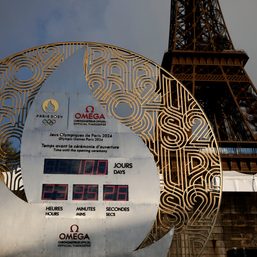SUMMARY
This is AI generated summarization, which may have errors. For context, always refer to the full article.

On January 9, 2012, Malaysia’s High Court acquitted opposition leader Anwar Ibrahim of sodomy charges after a highly publicized and controversial 2-year trial. As Malaysia looks to elections in 2013, which are widely expected to be called later this year, Asia Foundation’s In Asia‘s editor, Alma Freeman, interviews Herizal Hazri and Nurshafenath Shaharuddin in The Asia Foundation’s Malaysia office for insight into how the verdict could affect elections, Prime Minister Najib Razak’s recent democratic reforms, what this says about the independence of Malaysia’s judiciary, and more.
How is Anwar Ibrahim’s acquittal being received among the public in Malaysia?
Overall, the verdict has been received positively by the public in Malaysia. Opinions on what positive effects Anwar’s acquittal could have on the political discourse in the country vary depending on political sympathies: pro-Anwar responses generally hail it as a sign for future reforms and Anwar’s innocence in the matter, while pro-establishment responses mark the verdict as a sign of already existing judicial independence and the liberal-mindedness of the Najib administration. For the general public who are not aligned to either Anwar or Najib’s administration, the verdict presents a hope for a more transparent and mature democracy in Malaysia.
Prime Minister Najib said that the verdict exhibits the independence of Malaysia’s judiciary, and that it “will help extend this transparency to all areas of Malaysian life.” What are your thoughts on this?
It is always reassuring to know that the prime minister is focused on reforms, and there have been bold decisions made recently that could promote better transparency in Malaysia, such as the repeal of the Internal Security Act and three Emergency Ordinances, as well as the formation of the Electoral Reform Select Committee. Certainly, and no doubt, Malaysia is transforming. However, I don’t think Anwar Ibrahim’s acquittal should be viewed as an example of the prime minister’s democratic reforms efforts. This verdict came from the strength of the judiciary’s ability to be impartial in exercising its responsibility to uphold law in Malaysia.
In November, after violent clashes erupted in July in Kuala Lumpur between the police and protestors rallying for greater transparency, Prime Minister Najib passed the controversial Peaceful Assembly Bill setting limits on public gatherings. Yet thousands of Anwar’s supporters were allowed to rally outside of the High Court ahead of the verdict. Is this seen as an indicator for greater freedom to assemble?
It is important to acknowledge the difference between the demonstration in July and this week’s demonstration by Anwar Ibrahim’s supporters. The July gathering – planned by the Coalition of Free and Fair Elections (BERSIH) – was denied its choice for a gathering venue by the Royal Malaysian Police (RMP) who deemed it unsuitable. The group was then asked to choose another location but they refused to move. The gathering was then declared illegal.
This resulted in the unfortunate clashes between the demonstrators and the police force when the protestors went ahead with the rally. The organizers of Monday’s rally, the Parti Keadilan Rakyat, on the other hand, were able to reach an agreement with the police prior to the rally. The organizers also guaranteed the police that the demonstration would be peaceful and that the Party would be take responsibility to make sure that was the case. So, it is difficult to say that the fact the police allowed Anwar Ibrahim’s supporters to demonstrate is an indicator for greater freedom to assembly. Nevertheless, merit should be given to the RMP force for the way they handled the crowd and conducted their responsibilities on Monday. It shows a greater awareness on the part of the police and the government of the optics of managing public assembly.
In what ways will this affect the coming elections and public perception of the ruling party under Najib Razak and the opposition party led by Anwar Ibrahim?
For the moderate majority, this will probably result in a net positive for the Najib administration, provided that it can follow through with the increased perception of greater civic liberalization and reforms. It would be fair to say that the mood is cautiously optimistic. For the opposition, the PKR must now focus on presenting voters with a concrete manifesto for the upcoming elections. In agreement with my colleague Ibrahim Suffian of the independent polling group Merdeka Center, a good thing that could come from the verdict is that now Malaysians can choose to move on and focus on policy matters when making their decisions on who to vote for in the next election, and leave aside moral and personal attacks that have unfortunately taken centre stage of many political campaigns for both the ruling coalition and the opposition camps.
How has social media played a role in disseminating information on the verdict?
Malaysia – which ranks 17th globally in Facebook users – has a growing presence on leading social networks, and these networks were part of the reason local news outlets and activists were able to disseminate information about the verdict to the public so rapidly. Though thousands gathered in person on Monday in support of Anwar, thousands more were following the developments via platforms such as Facebook and Twitter. Mainstream and alternative media were also on board with this approach and quickly established live update feeds on their news sites that enabled the more traditionally inclined public to follow along in near real time.
Without such platforms, the three small bomb explosions that occurred right after the verdict was announced would not have been covered to the extent that they were had it not been for the collective contribution of the public in what many describe as “community” journalism.” Also noteworthy is the Royal Malaysia Police’s generally positive and proactive response throughout the entire event, posting timely updates and announcements via its Twitter, Facebook, and YouTube channels, which were invaluable not only to media practitioners but also to members of the public.
What effects could this have on Malaysia’s image internationally?
If this event can be taken as momentum toward a more reform-minded administration, this could prove to further enhance and rehabilitate Malaysia’s international image. Nevertheless, the fact that the international community is heaping great attention on this one trial, and making broad statements based on its outcome, isn’t completely helpful for Malaysia’s democratic development. Human rights, for instance, must be championed not only for Anwar Ibrahim but also for marginalized communities, including refugees and asylum seekers.
Herizal Hazri is The Asia Foundation’s program director and Nurshafenath Shaharuddin is a program officer in Malaysia. They can be reached at herizal@asiafound.org and nina@asiafound.org, respectively. The views and opinions expressed here are those of the individuals and not those of The Asia Foundation or Rappler.
Add a comment
How does this make you feel?









There are no comments yet. Add your comment to start the conversation.